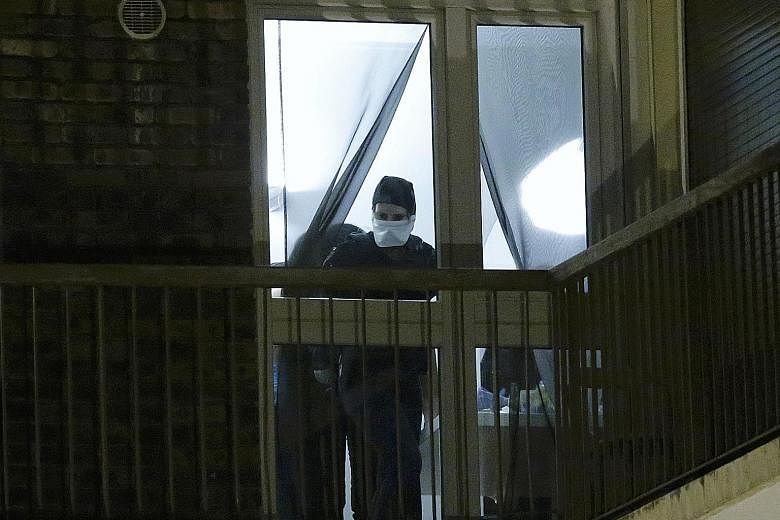PARIS • There was the parked car stuffed with gas canisters near the Notre Dame Cathedral, a possible effort to set off an explosion in the heart of Paris. There was the suspected plot to attack a train station in the Paris area.
There was the effort by one of the Islamic State in Iraq and Syria's (ISIS) most prominent propagandists to recruit two young people in Nice, where an attacker had killed 86 people in July by running them down in a truck.
In France, where terrorist threats have become distressingly commonplace, these three episodes, all in the last month, stood out for one reason in particular: Radicalised women were at the heart of each.
It is not clear whether the phenomenon is a blip or the beginning of a trend in which women play a more active role in plotting and carrying out attacks on the West.
Security officials say they are concerned, and they are seeking to understand whether women are beginning to step up because so many men are under surveillance or in detention, or whether recruiters from terror groups are urging women on, in part as a way to shame more men into taking action. They also wonder if it is part of a strategy to make Europeans feel that they should fear men and women alike.
Whatever the reasons, the authorities take it as a given that women are now part of the ISIS terror group's European strategy, said Paris prosecutor François Molins, who is in charge of terrorism investigations nationwide. "The terrorist organisation not only uses men, but also women, young women, who meet and develop their projects virtually."
Interviews with sociologists, lawyers, a Muslim chaplain and security experts suggest that the female extremists now drawing the attention of French law enforcement are different in several respects from earlier generations of women who joined or were attracted to Islamist groups.
Those being apprehended now are often younger and blur traditional gender roles between male and female Islamic extremists.
They are more willing to take action themselves rather than to remain behind the scenes, in contrast to the women who have been leaving Western Europe for Syria to become wives of ISIS fighters and bear their children.
Today's female European militants are also far from the Muslim extremist women from Chechnya and Iraq who became suicide bombers, almost always under the instruction and careful monitoring of male extremists.
They are also far from earlier generations of non-Muslim radical women, such as those in the Red Brigades who embraced violence but often also had feminist ideals.
Mr Farhad Khosrokhavar, a sociologist at the École des Hautes Études en Sciences Sociales in Paris, said adolescent and post-adolescent boys and girls were increasingly involved in extremism in Europe.
"And then we have a second category, which is women," he said.
While the extremist women operating today in France typically proclaim loyalty to the ISIS and have been in touch with people affiliated with the group, they appear to be acting with guidance and encouragement only from afar, from men either in Syria or in Europe.
Yet there are also continuing signs of the ways in which the male-dominated nature of Islamic radicalism culture defines the relationships between male and female extremists.
Recruiters encourage online betrothals, and one of the women who were recently detained in the case of the train station attack had been engaged online to two different extremists, each of whom was killed while carrying out gruesome attacks in France, Mr Molins said.
These somewhat contradictory elements suggest the threat is coming from a more independent, feminist type of terrorist, who sees herself as acting similarly to a man, but, at the same time, some in this category of women also appear to be acting on instructions from male counterparts in the ISIS.
In both cases, there is the possibility, experts say, that the ISIS and other groups are using women to goad men into staging attacks.
NYTIMES

